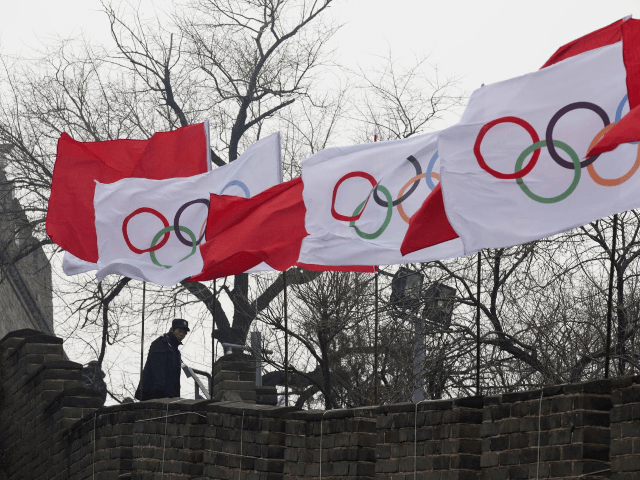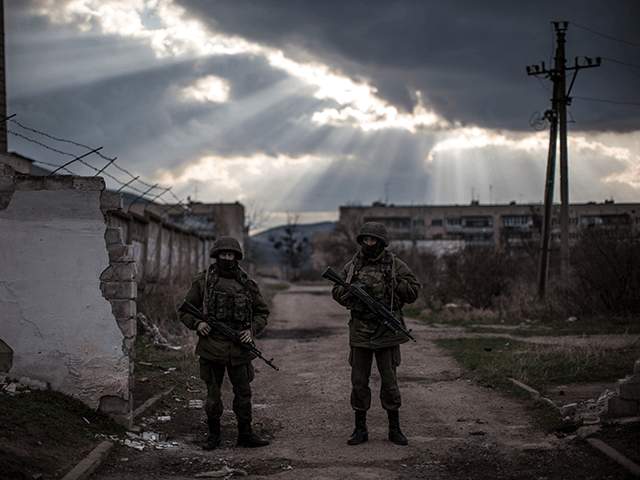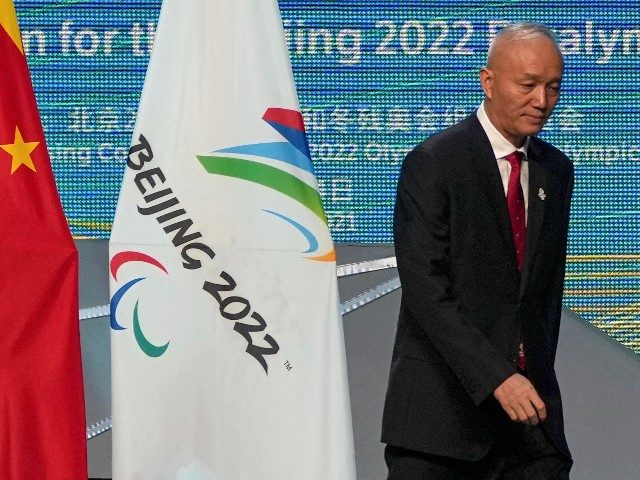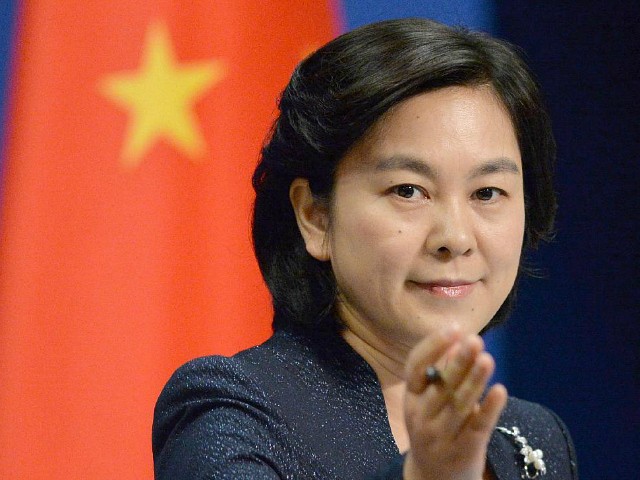The Chinese government propaganda outlet Global Times claimed on Sunday that the Chinese Communist Party “could use” the upcoming Beijing Paralympic Games as a “chance to play a bigger role” in the Russia-Ukraine war.
China hosted the 2022 Beijing Winter Olympics in February despite significant international disgust with the International Olympic Committee (IOC) over its choice for host city, given China’s status as a genocidal rogue state. The Communist Party began a genocide against the Uyghur people of East Turkistan and other Muslim groups in the region in 2017, which has continued to this day. International legal experts concluded at a tribunal in December that China had committed genocide “beyond a reasonable doubt,” citing the Communist Party’s extensively documented use of concentration camps to imprison, torture, sterilize, and enslave Uyghur people.
Partly in response to the intense international campaign against the “Genocide Games,” the event recorded its lowest ratings in American history. About 42 percent fewer Americans watched the 2022 Winter Games than its predecessor in South Korea in 2018.

A security person stands near the Olympic flags during a ceremony to mark the arrival of the Olympic flag and start of the flag tour for the Winter Olympic Games Beijing 2022 at a section of the Great Wall of China in Beijing Tuesday, Feb. 27, 2018 (AP Photo/Ng Han Guan).
The Paralympic Games, which typically have generated less international interest than the Olympics, are set to begin this week.
The Global Times suggested that the ongoing conflict between Ukraine and Russia could prove an opportunity to promote the Olympics.
“The 2022 Winter Paralympics will be held in Beijing from March 4 to 13, and China could use it as a chance to play a bigger role for peace mediation and make the Olympics a platform to realize peace, said some Chinese experts,” the Times claimed. The newspaper did not specify how the Paralympics could become a “platform” to end the ongoing Russia-Ukraine war.
Russia invaded Ukraine in 2014, colonizing its Crimean peninsula and arming proxies that have waged war against the Ukrainian army since then in the Donbas region. Last week, Russian leader Vladimir Putin announced that he would push Russian troops into the entirety of Ukraine after recognizing his proxies in Donetsk and Luhansk as sovereign states, then claiming those “countries” requested Russian military aid against Ukraine. In his remarks, Putin emphasized his belief that Ukraine is not a legitimate country and was a fabrication by “architect” Vladimir Lenin.

Armed men believed to be Russian military stand outside a Ukrainian military base on March 12, 2014, in Simferopol, Ukraine (Photo by Dan Kitwood/Getty Images).
The Global Times observed that China, typically a reliable Russian ally, has “clarified its neutrality” in the issue and repeatedly upheld Ukraine’s sovereignty. The state newspaper explained this stance by contending that maintaining some support for Ukraine grants China greater leverage in the conflict.
“China’s stance of neutrality is important because if there is one country that can one day effectively mediate the conflict, that country should be one with real neutrality and which respects Ukraine’s sovereignty,” the Times claimed, “and also did not follow the West in sanctioning Russia and harming the livelihood of Russian people.”
The Global Times appeared to lament that China has no significant role in the ongoing war.
“Western voices should not be allowed to dominate the voice of the international community over the Ukraine situation,” the Global Times argued, “as Western powers, especially the US and NATO, have actually been the key forces in instigating the crisis and contradiction between Russia and Ukraine.”
The state newspaper also argued that America “doesn’t want to see the conflict end quickly as it wants Russia to be mired in trouble as long as possible.”
China has attempted to maintain friendly relations with both Russia and Ukraine throughout the conflict. On the one hand, China facilitated Russia’s ability to export wheat to China last week in an attempt to buoy its economy against Western sanctions. China also abstained in a United Nations Security Council vote to condemn Russia for its violence in Ukraine.
China has not offered any material support to Russia, however, openly rejecting Russia’s claims that Donetsk and Luhansk are legitimate states and defending Ukraine’s territorial integrity. Chinese propaganda cartoons appear to show Crimea as part of Ukraine eight years after Russia “annexed” it; the Chinese government typically responds with outrage and economic sanctions when international actors exclude territories it falsely claims as China, such as Taiwan, from their maps.
In remarks shortly after the assault on Ukraine began last week, Chinese Foreign Ministry spokeswoman Hua Chunying insisted, “Taiwan is for sure not Ukraine.” China considers Taiwan – a sovereign state with no ties to Beijing – a rogue “province,” much like Putin declared Ukraine has “no tradition” of being a country. Hua insisted that Putin was incorrect and that Ukraine was a sovereign state, while Taiwan “has always been an inalienable part of China’s territory.”
Hua asserted on Thursday that China would not aid Russia with any military assets.
Prior to the current assault, China maintained complex relations with Ukrainian President Volodymyr Zelensky. Last year, Zelensky aggressively combatted a Chinese company’s attempts to purchase the aeronautics company Motor Sich, a key defense manufacturer specializing in jet engines, going as far as imposing unilateral sanctions on China and ultimately nationalizing the company.
Immediately following American President Joe Biden’s announcement that he would lift sanctions on the Nord Stream 2 pipeline, a natural gas project that would have given Russia a stranglehold on the German energy market, Zelensky developed a sudden interest in China’s Belt and Road Initiative (BRI), a global project meant to make developing countries dependent on China for infrastructure.
“Volodymyr Zelenskyy expressed hope that Ukraine could become a ‘bridge to Europe’ for Chinese business” during a phone call with dictator Xi Jinping, the Ukrainian presidential office revealed in July.


COMMENTS
Please let us know if you're having issues with commenting.